|
Conforming to CFPP 01-01 and CFPP 01-06.
Weekly tests are required to be carried out on Washer-Disinfectors by the User or Competent Person(CPD). To simplify this task we have incorporated all the necessary items in a sturdy case.
The kit enables personnel to perform weekly tests processing loads of the following types:
Surgical instruments Hollow-ware Anaesthetic Accessories Rigid endoscopes Flexible endoscopes Laboratory use
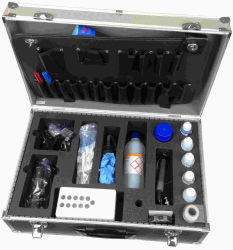 |
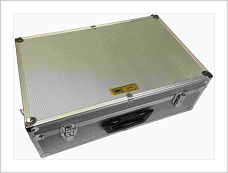 |
Part No. 154
The kit includes the following items:
Carry Case
Total water hardness reagents
Calcium Water Hardness reagents
Water Conductivity Meter, probe
NIST certified Conductivity calibration solution
Mini Fixed Air Incubator
100 Medi-check Protein Residue Test Swabs
Stopwatch for ACT and Incubation period timing
Sample Bottle and holder for conductivity testing
Sample bottle for Water Hardness Testing
Pens
Face-mask
Gloves
Instruction manual
|
| |
|
|
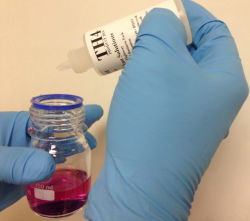 |
Water Hardness Testing
Water hardness causes deposits on load items when heated and can cause many problems to instruments.
Water hardness is checked by dropping reagent liquids into a container of the sample water and observing the colour change.
By noting the number of drops used to change the colour, the hardness can be quickly and easily calculated.
Both Total and Calcium Hardness reagents are included. |
| |
|
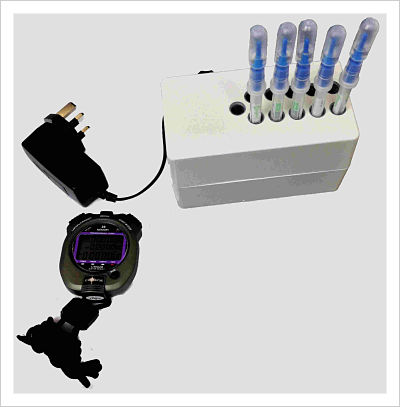 |
Protein Detection Testing
Protein detection is used to show if there is any protein on processed instruments by swabbing them with a moist swab, placing the swab into a reagent then observing any colour change. |
| |
|
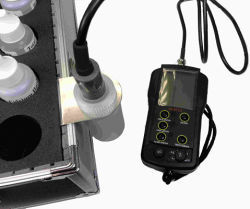 |
Water conductivity Testing
Water conductivity is a good general indicator of water quality.
The principal is that pure water does not conduct electricity and would have a very low conductivity reading.
Impurities in the water cause a flow of electricity when tested.
By using a probe that has two conductors at a set distance apart, the conductivity through the water can be measured as μS per cm
The water sample is placed in a small sample bottle that conveniently fits to the side of the case.
|
|